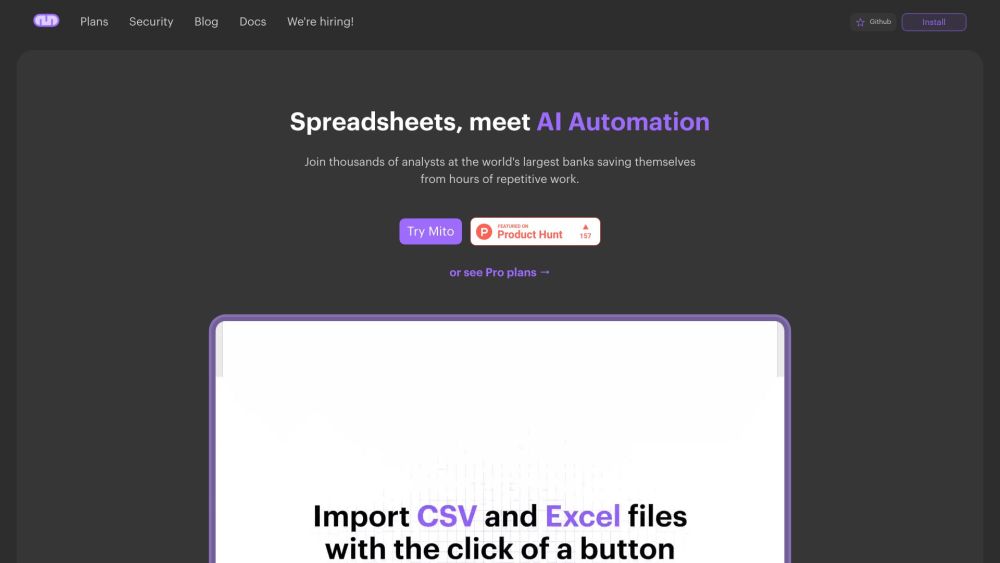Concerns Arise Over Accuracy of New York City's AI-Powered Shot Detection System
Most people like

Discover how to enhance your messaging experience with a tailored GPT solution for WhatsApp and Telegram! This innovative technology allows you to create a personalized chatbot that can engage users, answer questions, and streamline conversations, making your communication more efficient and effective. Whether you’re a business looking to improve customer interaction or an individual wanting a more dynamic chat experience, leveraging a custom GPT can transform the way you connect. Explore the possibilities and elevate your messaging today!

Mito is a powerful tool designed to streamline your spreadsheet data editing while effortlessly generating Python code. Whether you're looking to enhance productivity or simplify data manipulation, Mito provides an intuitive interface that makes coding accessible for everyone. Boost your spreadsheet capabilities and transform your data workflow with Mito today!

Craft captivating AI stories, novels, blogs, and educational content effortlessly. Generate innovative plots, build immersive worlds, and create engaging posts on any topic.

Unlock the full potential of your online presence with our powerful SEO tool designed for keyword research and effective content strategy development. Whether you're a seasoned digital marketer or just starting out, our intuitive platform equips you with the insights you need to identify high-impact keywords and create engaging content that resonates with your audience. Elevate your SEO game and drive organic traffic by leveraging data-driven strategies tailored to your niche. Start optimizing today for better visibility and improved search rankings!
Find AI tools in YBX
Related Articles
Refresh Articles
